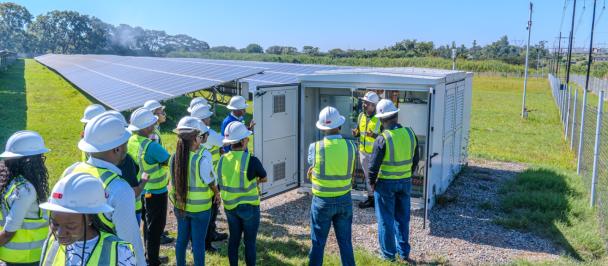Chipota Falls, Serenje
In a quiet village in Chief Kabamba’s chiefdom at the foot of the Muchinga escarpment in Central Zambia, a group of curious villagers rushed to catch a glimpse as a short convoy of vehicles carrying a delegation from the Government of Zambia and the UNDP entered the village. The joint delegation headed by Zambia’s Minister of Energy, Matthew Nkhuwa, had arrived to pay a courtesy call on Chief Kabamba the 7th of the Lala people of Serenje District and to inspect the proposed site for a mini-hydro power station to be constructed at the Chipota Falls in his chiefdom.
The 200-kilowatt mini-hydro power station would be constructed by a UNDP-supported project to promote the transfer of renewable energy technology from China to Zambia using the South to South cooperation model. The initiative is a partnership between the Department of Energy in Zambia, the Ministry of Science and Technology in China and the UNDP Country Offices in Zambia and China and it’s being funded by the Government of Denmark. The partnership seeks to increasing access to energy through off-grid and community-based electrification - thereby indirectly supporting other socio-economic and environmental objectives, most notably poverty reduction through employment generation and supporting action on climate change mitigation and adaptation. This initiative is a key component of UNDP’s support to the implementation of Zambia’s Sustainable Energy For All. Statistics on Zambia’s national electrification are grim. Despite its huge energy resource endowment, less than half (31.4 percent) of all Zambians and only about 4.4 percent of those living in rural areas have access to electricity, according to the Department of Energy.
"Rural Electrification Authority has earmarked off-grid solutions such as the development of the 300kW Lunga mini-grid in Luapula Province and the 200kW Chunga mini-grid. All these efforts are being made in adhering to our national rural electrification target of 51 percent by the year 2030.” Hon. Mathew Nkhuwa, Minister of Energy,
“Our goal is to provide catalytic support to Zambia to increase the use of renewable energy such as solar-off grid technology to cushion the country from the adverse effects of climate change. This will act as a catalyst for enhancing rural development through promotion of better conditions for women to access better education and health services”. Mandisa Mashologu, UNDP Country Director.
Ms. Mashologu also disclosed that an estimated 15,000 people are expected to benefit directly from the clean energy to be generated by this mini hydro. For Chief Kabamba in whose chiefdom the mini-hydro power station would be constructed, it was all smiles as 200 kW of reliable power would make it possible to effectively irrigate crops, boost farming yields and fuel economic growth in his chiefdom.
Chief Chibamba said Schools will become more productive and health facilities more accessible. This will help our children study under clean light without any irritation to their eyes and patients will be able to access health services during the night.
With unreliable electricity, many rural families in Chief Kabamba’s area are often forced to rely on kerosene or paraffin lanterns as a primary source of lighting or burning wood, which emit soot and toxic fumes. Experts say this not only can lead to premature death due to diseases but can also cause fire accidents and burn injuries in addition to fueling deforestation.
But the project is not just about going green. It also aims to empower women in the male-dominated, conservative district, where child marriage is rife, and girls are routinely denied an education and live a life largely confined to home. To help get power to those who have never had it before, means vaccines can be refrigerated without disruption; health workers no longer need to work by torchlight at night, including when delivering babies and school enrolment would be improved. With this initiative, Kabamba Chiefdom in Serenje District is on the verge of a boom with a mini power grid that could stimulate the rural economy, empower women and bring jobs to rural communities.

 Locations
Locations





